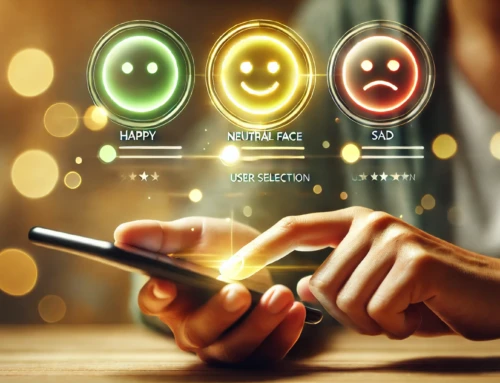
Customer service in real estate is paramount. It’s a key differentiator promoted by the vast majority of brokerages and agents. It’s vital because real estate is a relationship business.
I’ve written about this before, but growing up and working for my dad in the hotel business, I was taught how essential it was to provide exceptional customer service. That has made me acutely aware of the overall decline in excellent customer service in our society at large.
Just think about your recent experiences when shopping, dining, flying or staying at a hotel. Think about your experiences in any service industry were customer service is its lifeblood.
How many times during those experiences did someone say “No problem” after you thanked him or her for help?
Words do matter: especially in the world of customer service. Using the right words can take an average customer service experience and turn it into something exceptional.
Using the wrong words will likely leave someone at a minimum disinterested or unsatisfied.
The problem with “No problem”
The response “No problem” is one of my biggest pet-peeves when it comes to language use. I am going out on a limb here, but I blame Millennials for driving the popularity of the “No problem” phrase. (See Google Ngram that charts the expression in books over time.)
Saying “No problem” has become so common as a response to replace “You’re welcome” that I have found myself occasionally using it! (The horror.)
What’s the problem? Exactly. Saying “No problem” instead of a more gracious phrase to denote appreciation or acknowledgment suggests that what you just did was a problem!
My family was out the other night in a restaurant in Downtown Seattle. I thanked the server for bringing us our drinks so quickly. Her response, “No problem.” What was the problem to begin with exactly? I complimented a Flight Attendant last week for a being a great crew. “No problem,” she responded. Was there a problem in being able to provide excellent service?
Don’t even get me started on how many times in a single day of Mall shopping I heard the phrase “No problem.” It seems everything we appreciate begins as a problem.
Making the magic happen
Then something magical happened at the new Hyatt Regency in downtown Seattle recently. My family stayed at the hotel overnight after attending The Rolling Stones concert.
Check-in was handled by a front desk “Guest Experience Specialist,” whom I am going to guess was a Millennial. I didn’t ask her age, so I am judging a book by its cover here. After I thanked her for doing a great job checking us in, she said, “My pleasure.”
Wow. I was almost giddy afterward. We grabbed a drink at the Lobby Bar after putting our bags in the room, and all I could talk about was that phrase: “My pleasure.”
I can appreciate that, for some reason as a society, we have grown uncomfortable with the phrase “You’re welcome.” It may be a little too “you” centric, for some.
But the phrase “My pleasure” as a response to acknowledge a compliment for services rendered is simply fantastic.
It makes me sad to think that when I receive even “good” customer service these days, I am delighted. Now I relish those rare occasions when I receive outstanding customer service. That little moment at the Hyatt Regency Seattle was one of those times.
Great agents and brokers know that to provide exceptional customer service, the little things matter. Even the turn of a phrase – replacing “No problem” and instead, genuinely saying “My Pleasure” – can make a huge difference.
Here’s to the phrase “My pleasure” trending up and “No problem” disappearing from our vernacular.
# # #





Really appreciate this post as “no problem” is a problem for me too. As you mentioned, there wasn’t a problem to begin with. It’s sad to learn that “you’re welcome” has drifted out of customer service. Now when I hear a younger person say “you’re welcome”, I tell them that someone raised them right. “My pleasure” is a great substitute and I will be sharing it with our team.
Kevin
I’m glad someone said something about the recent mis-use of the “no problem” vernacular. I noticed it the other day at Burger King (of all places). The nice lady told me “no problem” as she handed me my sack lunch. I drove away feeling like I owed her something.
Maybe I’ll cut her grass.
Randy
It’s “you’re welcome” not “your welcome” – sorry, couldn’t help myself in an article attempting to police language 🙂
Egads. Shame on me and our SSE! I hardly ever do that (as I wipe egg off my face). Thanks for the correction.
Language Cop said exactly what I was going to say……
Chick-fil-A employees always say, “My pleasure.” It almost forces a smile from both employee and patrons every time. I love it!
Why is saying “no problem”, a problem? If doing their job shouldn’t a problem to begin with, then why thank them? I don’t feel comfortable saying “my pleasure” when whatever action wasn’t to my pleasure or “your welcome” as if I were doing you a favor. It’s their job and they were probably going to do whatever you asked anyway, so your request was genuinely not a problem and your thanks was not required. Am I missing something?
Yes, you are missing something I believe. As the blog post says, “Saying “No problem” instead of a more gracious phrase to denote appreciation or acknowledgment suggests that what you just did was a problem!” No problem suggests they are solving a problem when none exits. It is an impolite response to the examples given. Now if they ARE solving a problem, then it is an appropriate response. But the common usage today is just wrong.